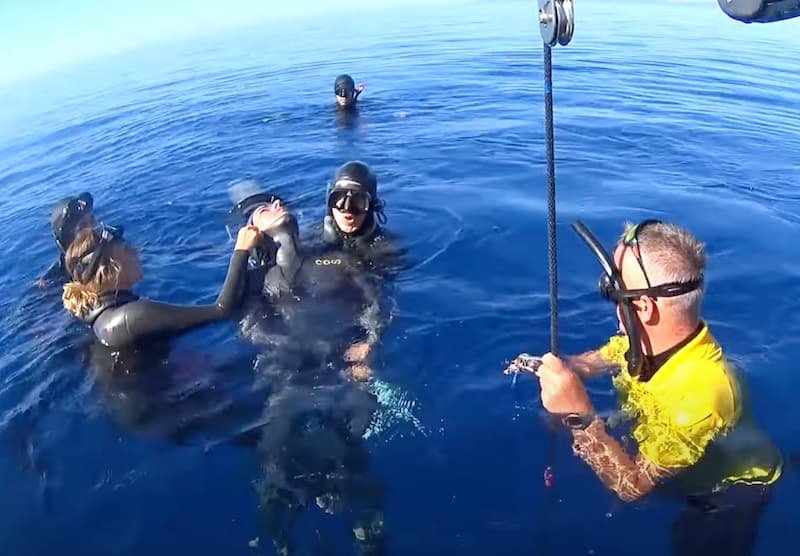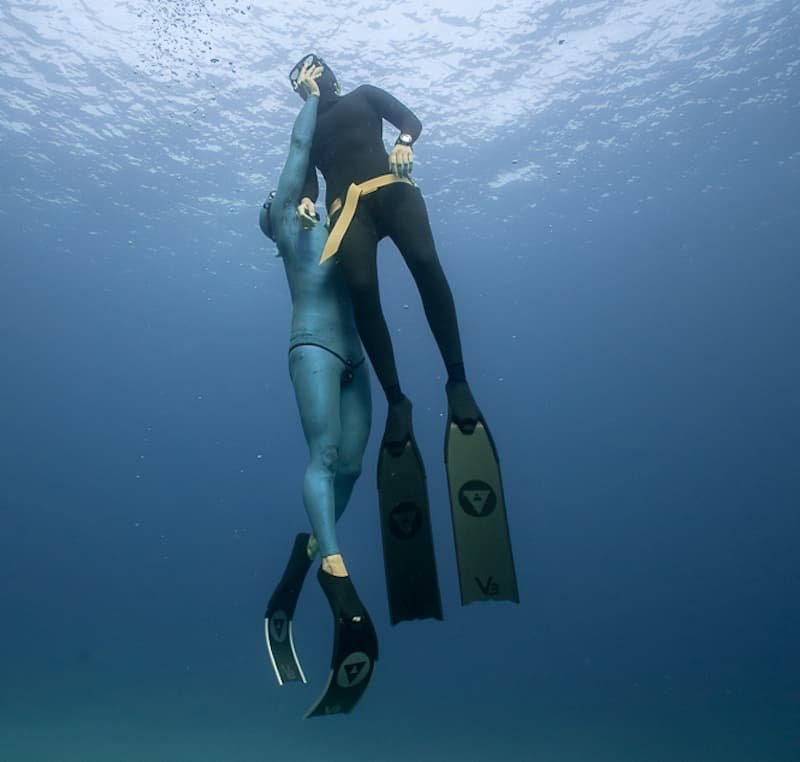
 Nick Pelios
Freediver, Creator
Nick Pelios
Freediver, Creator

 Nick Pelios
Freediver, Creator
Nick Pelios
Freediver, Creator
In Episode 9 of the Alchemy Freediving Podcast, host Luca Malaguti had a thought-provoking discussion with Dr. Jani Valdivia, a medical doctor, neurosurgeon, and Peruvian record-holding freediver. The conversation delved into the lesser-known psychological impacts of freediving, particularly focusing on the subconscious trauma that divers may experience.
Luca recounted a fascinating encounter with Dr. Phil Ainsley, a prominent researcher in exercise physiology at the University of British Columbia. Dr. Ainsley is renowned for his work on elite freedivers, having conducted numerous studies at the University of Split. These studies include extracting blood samples from divers at depths of 60 meters to analyze iron levels, hematocrit, and spleen contraction. However, Luca's curiosity extended beyond the physiological effects. He asked Dr. Ainsley about the subconscious trauma on the mind, such as the mental impact of barotrauma or severe diving incidents like perforated eardrums or spitting blood. This question opened a significant avenue of discussion on the mental toll of freediving.
Dr. Valdivia responded with insights drawn from his clinical experience. He emphasized that each blackout during freediving is a significant hit to the nervous system. While blackouts are commonly attributed to hypoxia, there's also a theory suggesting that CO2 toxicity might play a role. Regardless of the cause, these incidents are akin to neurological injuries, with potential long-term effects that are still not fully understood.
Drawing a parallel with concussions, Dr. Valdivia highlighted the similarities between the two conditions. Concussions, resulting from trauma, lead to a well-defined syndrome characterized by insomnia, mood changes, and memory issues. In freediving, blackouts may also induce similar symptoms, such as changes in sleep patterns, mood fluctuations, and short-term memory lapses. Dr. Valdivia shared his personal experiences of feeling guilty and experiencing insomnia and temporary memory loss following a blackout. He stressed that these psychological effects, though often subtle, are real and should not be overlooked.

The psychological aftermath of a blackout involves an introspective analysis, where divers evaluate their performance and identify deviations from their planned dive. This self-reflection is crucial for learning and improving in subsequent dives. Dr. Valdivia noted that achieving a clean surface protocol after a challenging dive brings a sense of achievement and boosts self-esteem.
One key takeaway from elite freedivers is the importance of leaving the dive site with a desire to dive again. This positive mindset is essential for maintaining motivation and enthusiasm for the sport. Feeling exhausted or defeated can hinder progress and reduce the joy of diving.

The conversation between Luca Malaguti and Dr. Jani Valdivia sheds light on the psychological aspects of freediving, an area that often receives less attention compared to the physiological effects. Understanding and addressing the mental impacts of freediving, particularly after traumatic events like blackouts, is crucial for the overall well-being and performance of divers. As research in this field progresses, it will hopefully lead to better support systems and strategies for managing the psychological challenges faced by freedivers.